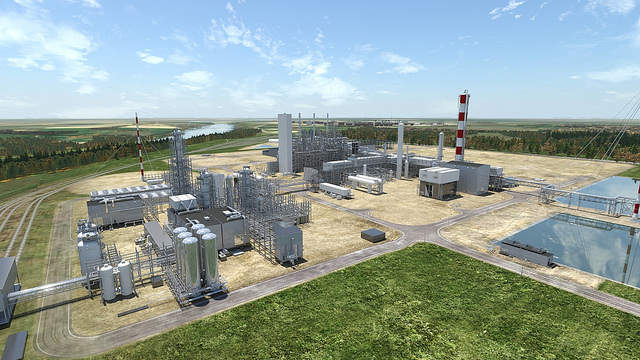Canada’s Alberta has doubled its investments for petrochemical upgrading projects to C$2.1 ($1.6bn), as part of its efforts to diversify the province’s energy sector.

Image: Alberta doubles incentives for petrochemical projects to $1.6bn. Photo: courtesy Inter Pipeline.
The incentive program for petrochemical projects is expected to create nearly 15,500 jobs during construction of multiple facilities across the province.
Under the second round of its Petrochemicals Diversification Program, the province will offer a total of $1.1bn ($830m) in future royalty credits for approved petrochemical projects.
Alberta Premier Rachel Notley said: “We’re fighting for Albertans to make sure we get every dollar of value for the oil and gas resources that belong to them.
“For decades, we’ve been settling for less while seeing new jobs and investment go south of the border. The time is now to think big, take action and finally upgrade more of our energy at home.”
An increase in the investment in the province’s petrochemical upgrading follows strong interest in programs under the Energy Diversification Act announced earlier in 2018.
Canadian and international companies have submitted 23 applications for petrochemical upgrading projects. The projects represent $60.2bn in potential investment in the province’s energy sector.
The government is expected to shortlist the proposed projects based on their economic viability.
Alberta Minister of Energy Margaret McCuaig-Boyd said: “Once again, interest has far exceeded expectations. It sends a clear signal that companies from around the world want to invest in Alberta.
“We need to put our foot on the gas pedal, accelerate energy upgrading in our province and seize this great opportunity to bring even more jobs and value to Albertans.”
In 2016, Alberta had committed $500 million in royalty credits for the petrochemical program, which has already resulted in construction of Inter Pipeline’s $3.5bn petrochemical complex east of Edmonton.
The facility, which is named as the Heartland Petrochemical Complex, will have a production capacity of up to 525,000 tonnes per year of polypropylene.
In November, the province further committed $600m for the petrochemical facilities that will convert natural gas, conventional oil and synthetic crude oil into more valuable products, such as gasoline, fertilizer and other products.
Once operational, the petrochemical facilities are expected to generate nearly $284m in annual revenue to the province.
